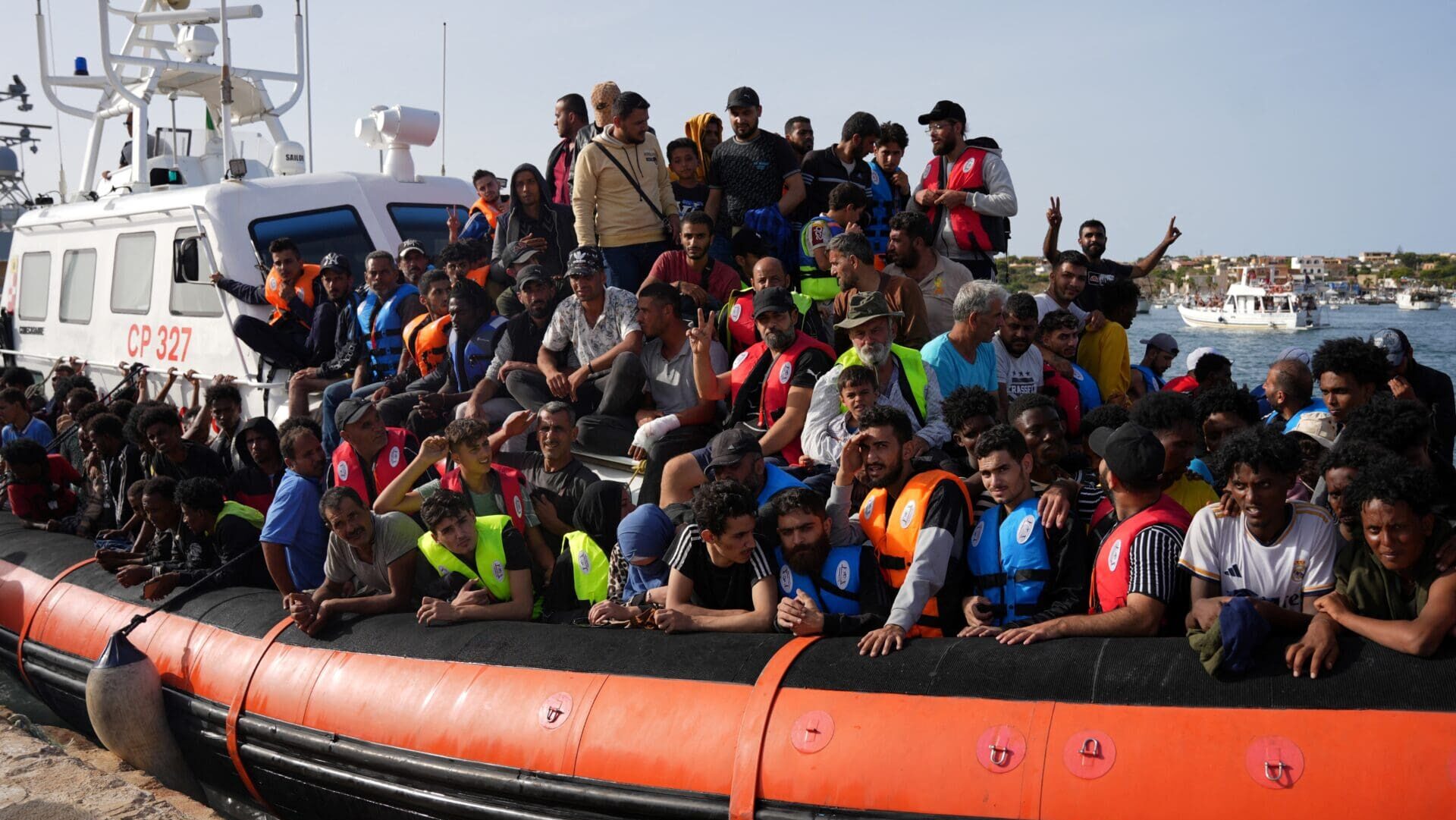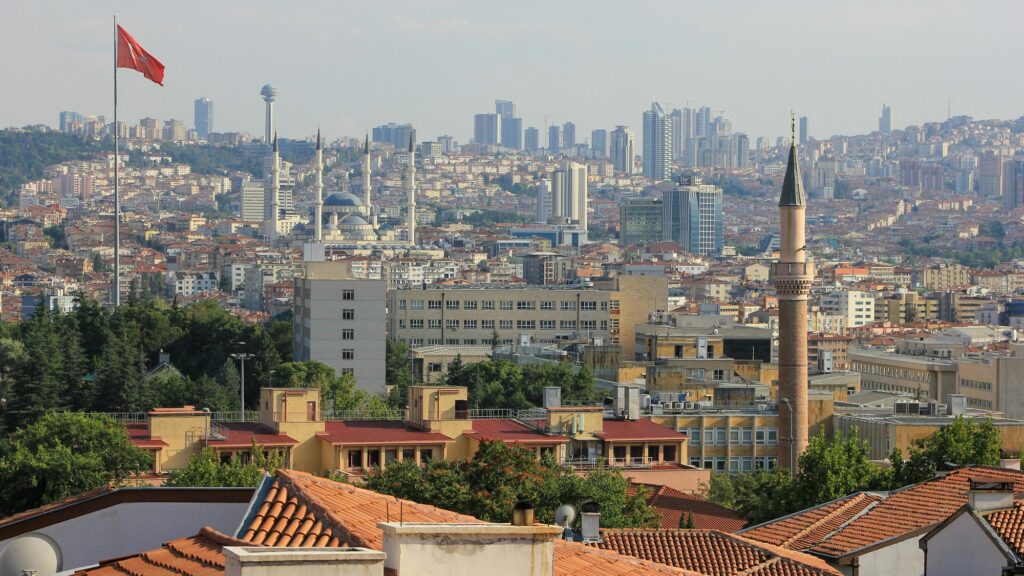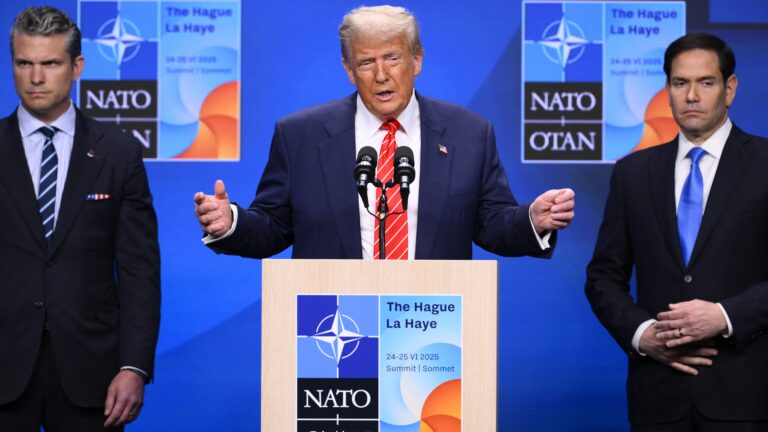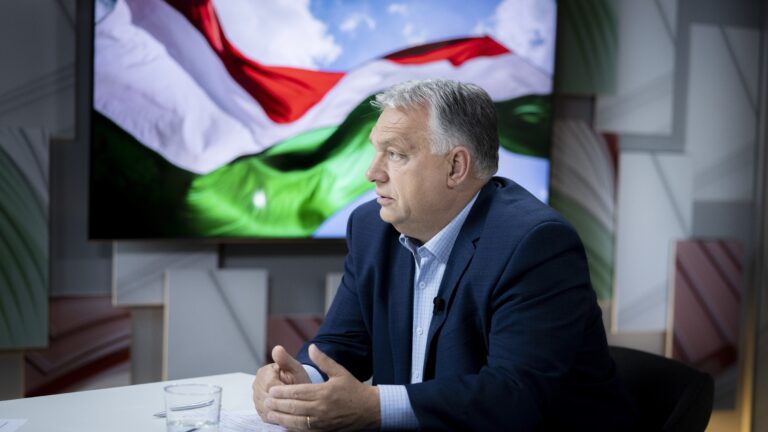According to a recent survey conducted during the Munich Security Conference, migration is identified as the primary concern for the populations of the G7, representing the most developed countries and the European Union, in 2024. The results of the poll—which also surveyed opinions in Brazil, China, India, and South Africa—indicate that European voters are more apprehensive about migration triggered by climate change and conflicts, as well as radical Islamist terrorism, than the threat posed by Russia. This represents a significant shift from the previous year, when Moscow was considered the predominant threat, particularly among the G7 countries.
According to this year’s survey, Russia is regarded as the foremost threat only by the UK and Japan. For Germans, it ranks as the seventh most significant concern, and for Italians, it is the twelfth. The poll assessed a total of 32 risks.
Of all the nations included in the survey, Germany emerges as potentially harbouring the most conspicuous anti-migration sentiment. According to a January survey conducted by the Allensbach Institute for Public Opinion Research and the Center for Strategy and Higher Leadership,
65 per cent of Germans express dissatisfaction with the government’s migration policy.
Furthermore, nearly half of the respondents (48 per cent) perceive a correlation between the surge in crime and the influx of refugees.
An additional noteworthy finding from the survey is that a mere 20 per cent of Germans indicate willingness to sustain Ukraine with arms.
Western Elites Versus Reality
The results of the two polls underscore what may arguably be the most significant challenge facing Europe today, one that impedes the continent’s ability to address other pressing issues satisfactorily: a disconnect between the majority of European leaders, including the EU elite in Brussels, and the reality on the ground. The elites seem either unable or unwilling to grasp the problems and threats that ordinary citizens are most concerned about. A cursory glance at the prevailing topics dominating European public discourse in recent times illustrates this point: discussions revolve around providing further financial and military assistance to Ukraine, the seizure of frozen Russian assets, the potential resurgence of Donald Trump, and the repercussions of his presidency on Europe, among others. There is notably scant discussion on migration or European migration policy.
But in fact the issue of migration is of great urgency. The resurgence of the Israeli-Palestinian conflict in the Middle East on 7 October of last year, combined with the adverse impacts of climate change on the region, has the potential to drive millions of individuals towards Europe. According to the Hungarian Migration Research Institute’s 2022 analysis, one of the primary drivers of future conflict and migration in the region will be water scarcity. Drought has already played a significant role in triggering the civil war in Syria, and this trend is likely to worsen in the future. Factors contributing to this deteriorating scenario include irresponsible water management practices by certain states—such as the failure to modernize irrigation systems and maintain water pipelines—, resources being ‘lost’ to corruption, population growth leading to increased water demand, and climate change, including rising temperatures and decreasing rainfall, among other factors. The analysis highlights that in the cases of Syria and Iraq, the challenges posed by
water scarcity are particularly severe and could directly and indirectly intensify migratory pressures on Europe.
With these considerations in mind, the European Union has established a new pact on migration, yet it persists in tackling the issue with the same flawed approach. The pact was adopted by the European Council last December, but it may take years before the regulations and legislation it encompasses are actually implemented. One key aspect of the pact is the proposal for a migrant quota system, wherein states that refuse to accept the mandated number of migrants would be required to pay a substantial sum to Brussels. György Bakondi, security adviser to Viktor Orbán, emphasized in a recent 5n interview with M1 television that Hungary opposes every aspect of the pact.
Hungary Takes the Right Approach
‘It is clear that the unhindered influx of masses of illegal aliens, aided by criminals, and then the processing of asylum applications within the EU is a failure of failures,’ he expressed. He added that it was clear that the vast majority of those arriving did not meet the conditions to be granted refugee status.
In fact, with the pact, ‘they want to force nation-states to accept the policies of the EP, in other words, they want to dictate to us whom we should admit,’ he said. Bakondi also highlighted that this is a quota-based distribution and if Hungary does not want to accept the number of migrants it is allocated, the state will have to pay nine million forints for each migrant not admitted.
For many years, Hungary has pursued a different approach in managing migration. During the 2015 migration crisis, Hungary took the proactive step of being the first country to opt for border closure and protection, a stance it has maintained steadfastly. Moreover, Hungary advocates for local assistance, contending that addressing the root causes of migration within the region and the relevant states is paramount, rather than allowing migrants seeking into Europe for a purportedly improved life. A notable exemplar of this approach is the Hungary Helps programme, which has successfully assisted over half a million individuals in finding stability within their home countries. This achievement has been realized through humanitarian investments and aid spanning from Africa to the Middle East and Asia. Notably, the Hungarian government places significant emphasis on investments that mitigate the adverse impacts of climate change, with a particular focus on sustainable water management. As acknowledged by the OECD, Hungary stands as a frontrunner in championing global sustainable water management initiatives.
Taking all of this into consideration, it appears that
the Hungarian government aligns more closely with the sentiments of the populace
than the elites in Brussels or the leaders of Western European nations. This sentiment is further underscored by the outcomes of the national consultation, where an overwhelming majority of respondents expressed agreement with Hungary’s policies on migration and Ukraine.
The forthcoming European Parliament elections will be pivotal in this regard. Will a left-wing European elite, which seems to disregard the genuine concerns of the people, continue to rule the roost? Or will a right-wing majority, grounded in pragmatism and national consciousness, and attentive to the issues faced by the people while actively seeking solutions, determine the trajectory of Europe over the next five years?
Related articles:








